
Max Reinhardt was an Austrian-born theatre and film director, intendant, and theatrical producer. With his radically innovative and avante garde stage productions, Reinhardt is regarded as one of the most prominent stage directors of the early 20th century.

Otto Wilhelm Fischer was an Austrian film and theatre actor, a leading man of West German cinema during the Wirtschaftswunder era of the 1950s and 1960s.

Paula Anna Maria Wessely was an Austrian theatre and film actress. Die Wessely, as she was affectionately called by her admirers and fans, was Austria's foremost popular postwar actress.

Attila Hörbiger was an Austrian stage and movie actor.

The Burgtheater, originally known as K.K. Theater an der Burg, then until 1918 as the K.K. Hofburgtheater, is the national theater of Austria in Vienna. It is the most important German-language theater and one of the most important theatres in the world. The Burgtheater was opened in 1741 and has become known as die Burg by the Viennese population; its theater company has created a traditional style and speech typical of Burgtheater performances.
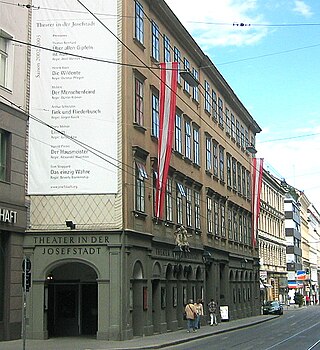
The Theater in der Josefstadt is a theater in Vienna in the eighth district of Josefstadt. It was founded in 1788 and is the oldest still performing theater in Vienna. It is often referred to colloquially as simply Die Josefstadt.

Otto Schenk is an Austrian actor, and theater and opera director.

Ernst Lothar was a Moravian-Austrian writer, theatre director/manager and producer.
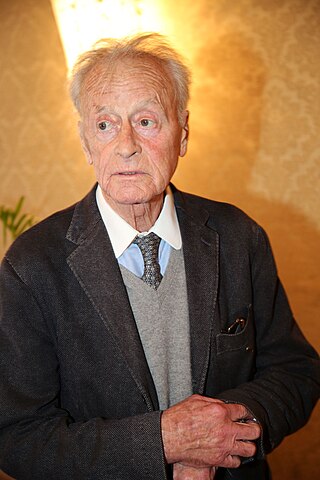
Helmuth Lohner was an Austrian actor, theatre director, and from 1997 to 2006 director of the Theater in der Josefstadt.

Hans Neuenfels was a German writer, poet, film producer, librettist, theatre director, opera director and theatre manager. As a director, he first focused on drama, staged at prominent houses such as the Vienna Burgtheater, and became a leading exponent of German Regietheater. From 1974, he turned to opera, looking for "the subliminal of the music and the interlinear of the texts", for "surprisingly new, sometimes even disturbingly ambivalent perspectives on the works".
Wien-Film GmbH was a large Austrian film company, which in 1938 succeeded the Tobis-Sascha-Filmindustrie AG and lasted until 1985. Until 1945 the business was owned by the Cautio Trust Company, a subsidiary of the German Reichsfilmkammer, and was responsible for almost the entire production of films in the territory of the Ostmark, as Austria was called at that time.
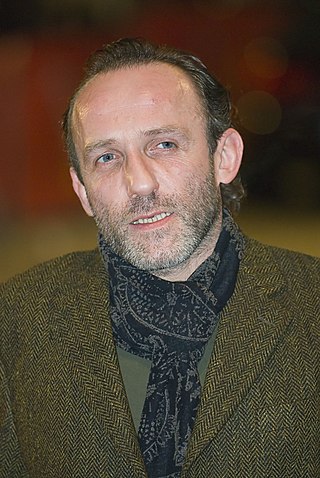
Karl Markovics is an Austrian actor and film director. He was born in Vienna, Austria.

Hugo August Thimig was a German actor, director, and the director of the Burgtheater in Vienna.
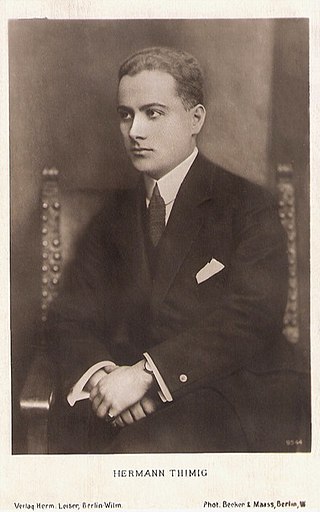
Hermann Thimig was an Austrian stage and film actor. He appeared in 102 films between 1916 and 1967.
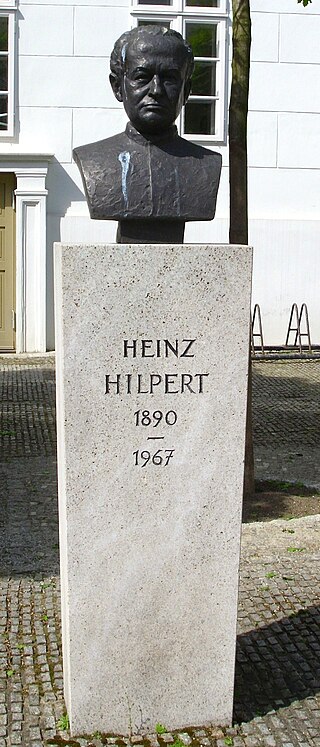
Heinz Hilpert was a German actor, screenwriter and film director. He was head of the Deutsches Theater during the Third Reich.

Helene Ottilie Thimig was an Austrian stage and film actress.

Hans Georg Nenning is an Austrian actor, author and director.
Herbert Waniek was a Vienna stage actor, theatrical producer and impresario. After 1943, he also began to build a parallel reputation as an opera director.
Götz Kauffmann was an Austrian stage, film and television actor, cabaret artist and writer.
The Nestroy Theatre Prize is an Austrian theatre award named after the poet Johann Nestroy. In 2000, the city of Vienna decided to combine two less noticed theatre awards: the Kainz Medal and the Nestroy Ring for Viennese Satire. The prize honours outstanding achievements at the Viennese and other Austrian theatres. The prize has been awarded annually in eight up to fourteen categories. Its ceremony is held in Vienna and broadcast live on national television.















